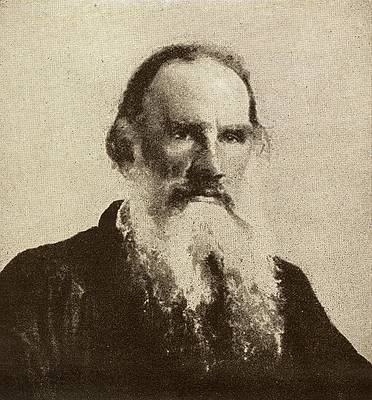Leo Tolstoy Archive
Written: 1890
Source: Original Text from TheAnarchistLibrary.org
Transcription/Markup: Andy Carloff
Online Source: RevoltLib.com; 2021

[1] I should have considered it all very pretty.
[2] I will tell him the plain fact, my dear.
[3] At the rate things are going.
[4] There is no reason for it to stop.
[5] I should put an end to all these fads.
[6] And plays the bountiful left and right.
[7] We know something about it.
[8] All the rest of it.
[9] He was very nice, and like everybody else.
[10] Everything will be lost.
[11] To take measures.
[12] God helps those who help themselves.
[13] I’ll tell him the truth.
[14] But do stop, for heaven’s sake. What right have you?
[15] There are limits to human endurance.
[16] Speak of the sun and you see its rays.
[17] Fixed idea.
[18] She scents it from afar.
[19] In Russia the relationships that are set up by marriage debar a marriage between a woman’s brother-in-law and her sister.
[20] The princess has her eye on Lyúba for her son. She is a knowing one, and scents a nice dowry.
[21] One must do her that much justice.
[22] Alína is an abbreviation, and a pet name, for Alexándra.
[23] And you contradicted them.
[24] Yefím was the peasant who had cut down the tree.
[25] It’s too fine spun.
[26] What energy, I do admire her.
[27] Oh, as far as that goes, we are not lacking.
[28] The woman, for all her roughness, is sorry to part from her husband.
[29] People shake hands much more often in Russia than in England, but it is quite unusual to shake hands with a servant, and Nicholas Ivánovich does it in consequence of his belief that all men are brothers.
[30] Father Gerásim is modeled on the lines of the celebrated Father John of Cronstadt.
[31] He knows that the priest is Father Gerásim, but wishes to address him not as a priest, but by his Christian name and patronymic, as one gentleman would usually address another.
[32] Father Gerásim attributes to Pilate what was said by Caiaphas the high priest.
[33] The period of compulsory service for a University graduate would be short in any case.
[34] It is not unusual among Russians for men-friends to kiss one another; but it is quite unusual for a man of position to kiss a village priest who calls as a visitor—and it indicates great intimacy or great emotion.
[35] Alexander in his Christian name, Mikáylovich (= son of Michael) is his patronymic, and Starkóvsky in his surname which is seldom used in ordinary social life.
[36] Lyúbov Nikoláyevna (= Love daughter of Nicholas) is the courteous way of naming Lyúba. The latter is a pet name.
[37] It is only a comedy secret.
[38] Starkóvsky, directing the dance, says: “Ladies form a circle. Gentlemen advance!”
[39] At least send that man away. I don’t wish him to be a witness of our conversation.
[40] Alexander Petróvich replies in very bad French: “I understand! I am always to go away!”
[41] Pugachev was the leader of a formidable rebellion in Russia in the eighteenth century.
[42] Tolstoy did not fully realize the facts (described in A Peculiar People) of the Doukhobors’ submission to their leader, or of their belief in him as an incarnation of the Deity. In fact, when he wrote this play, Tolstoy regarded the Doukhobors as a type of what all Christians should be.